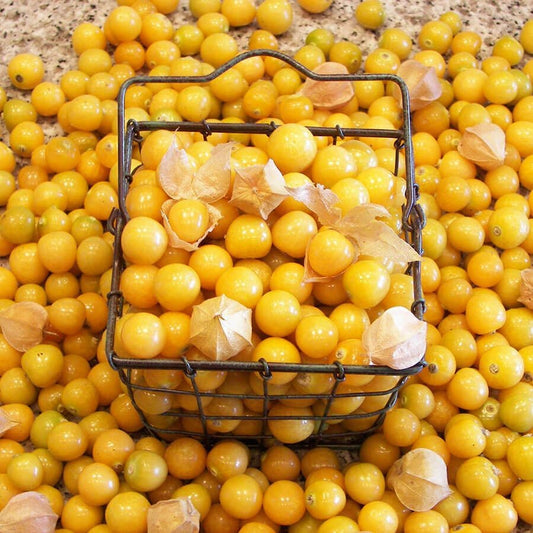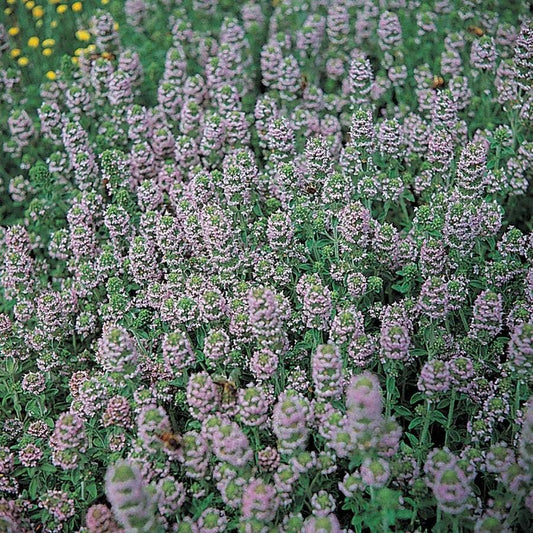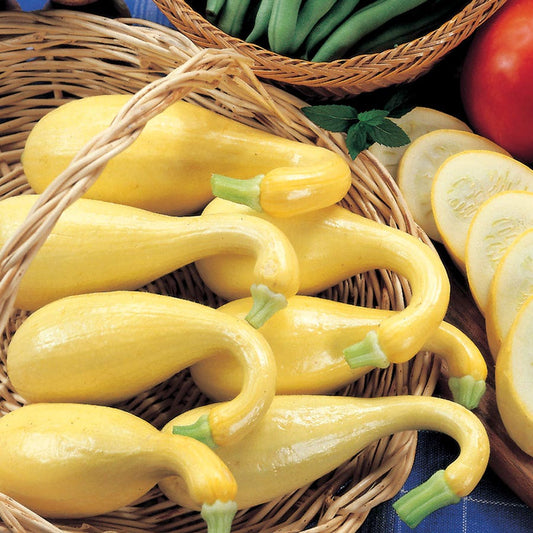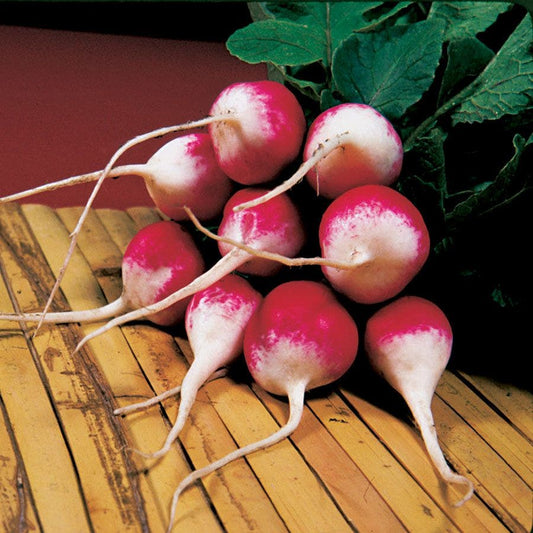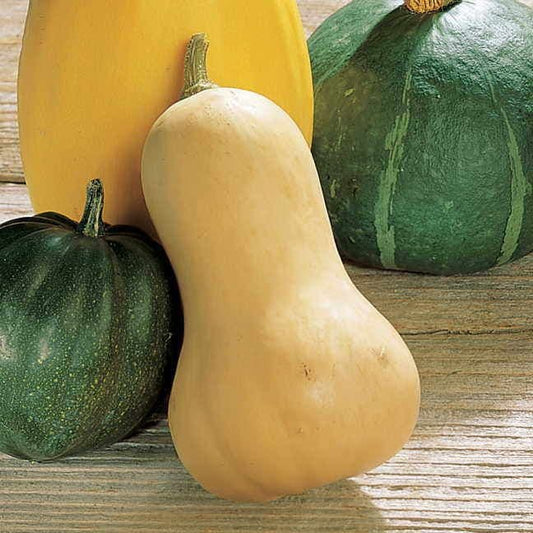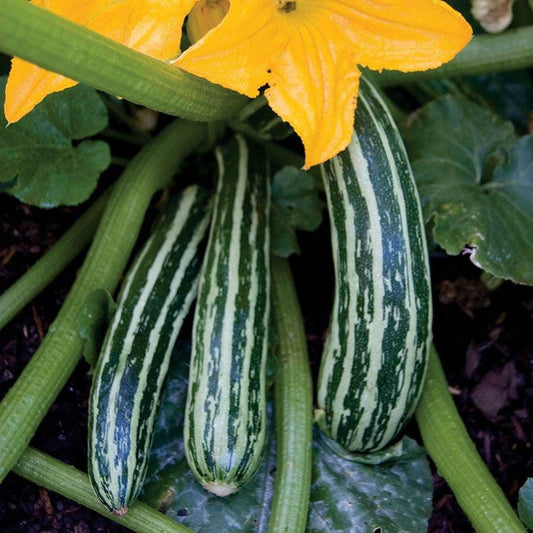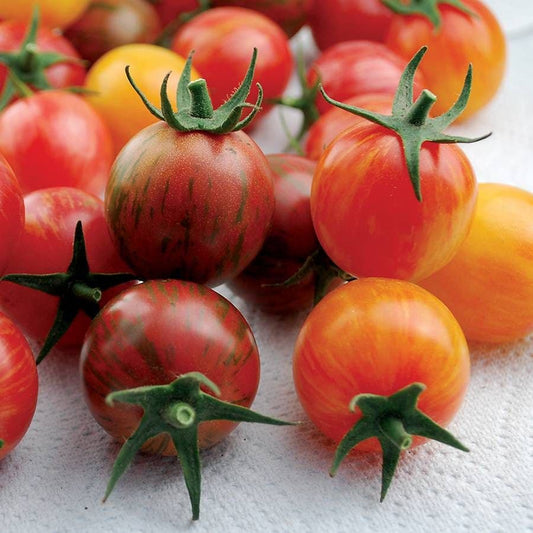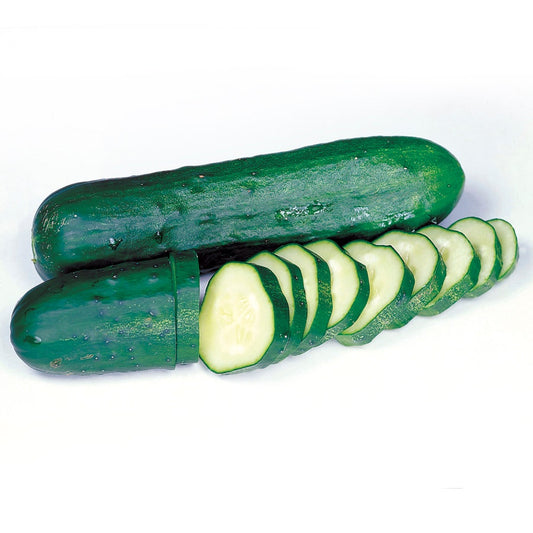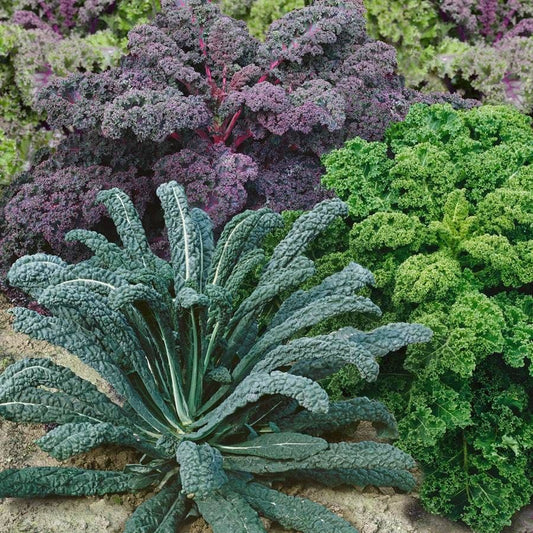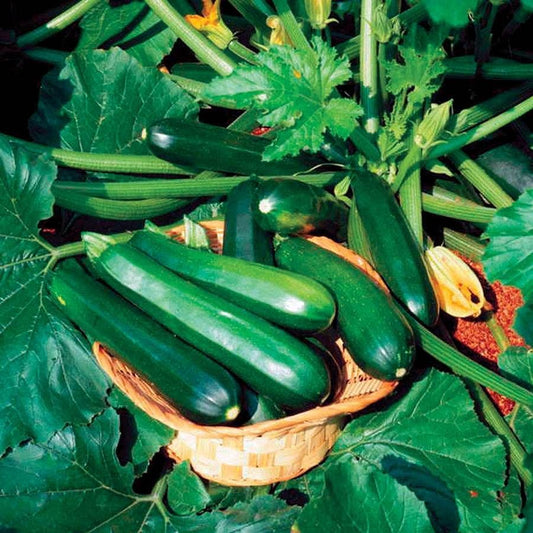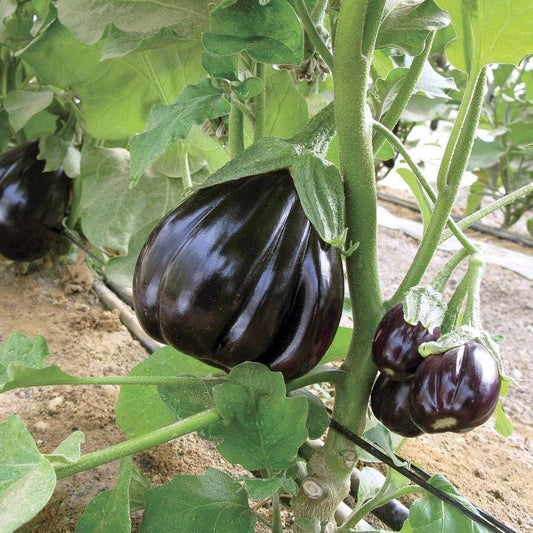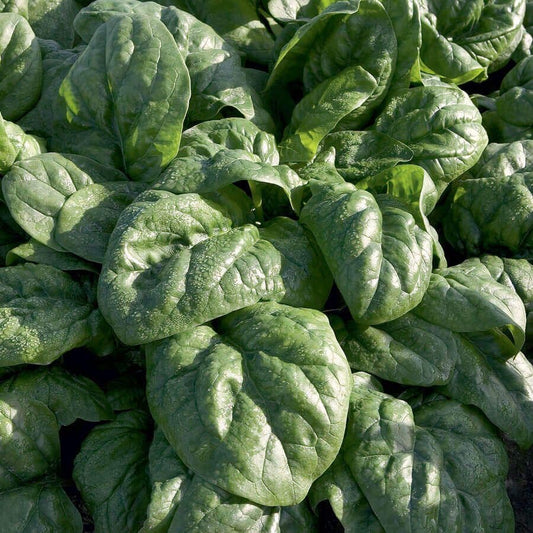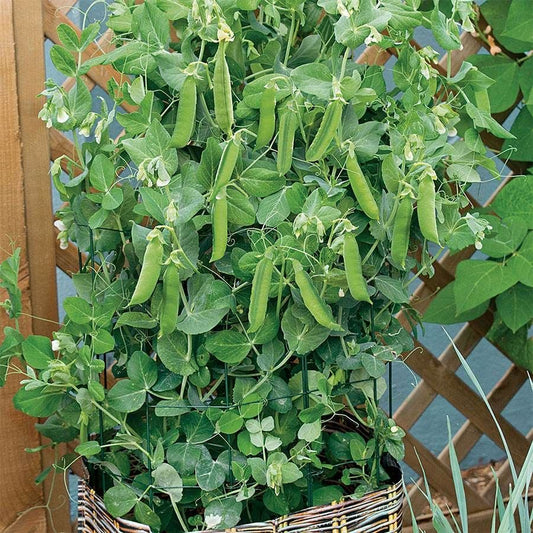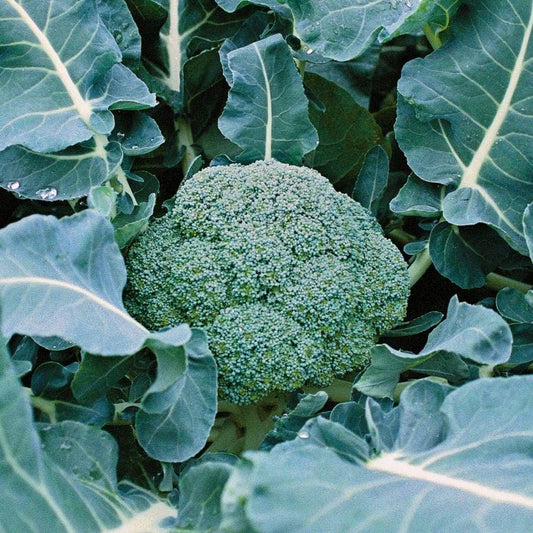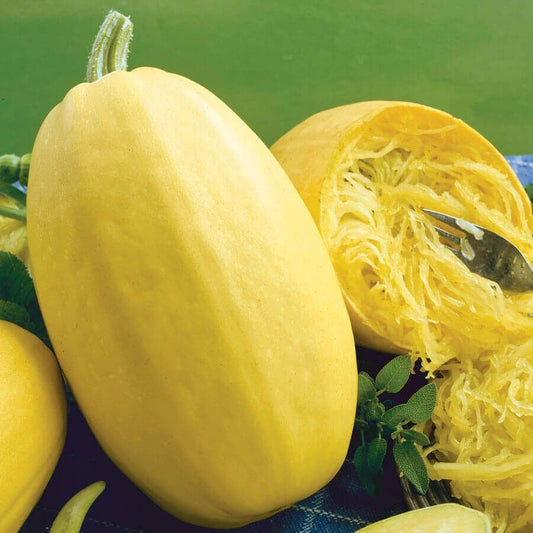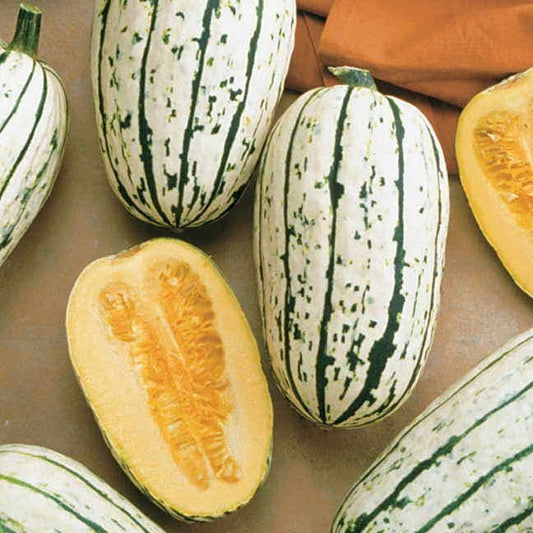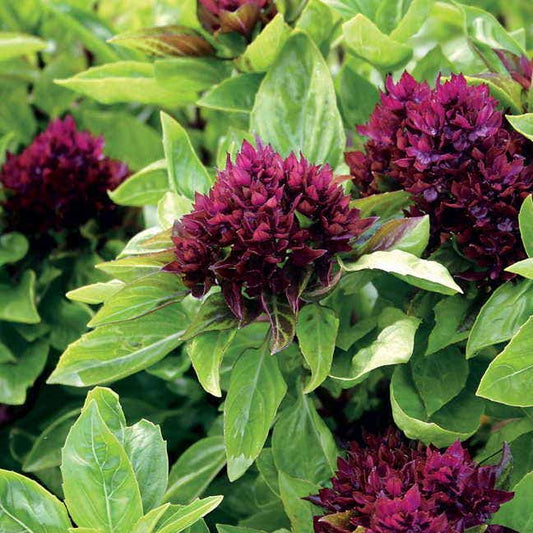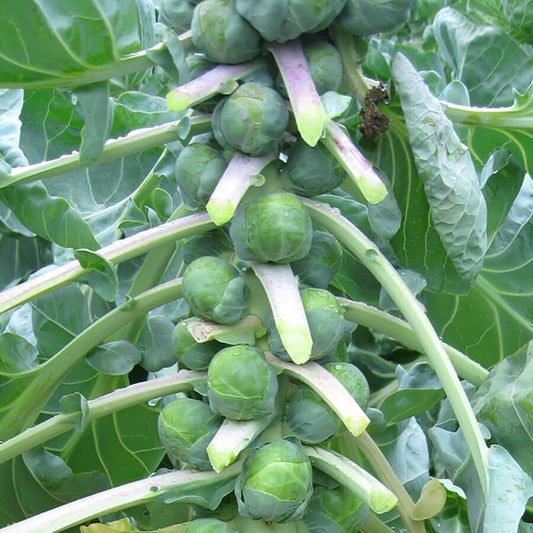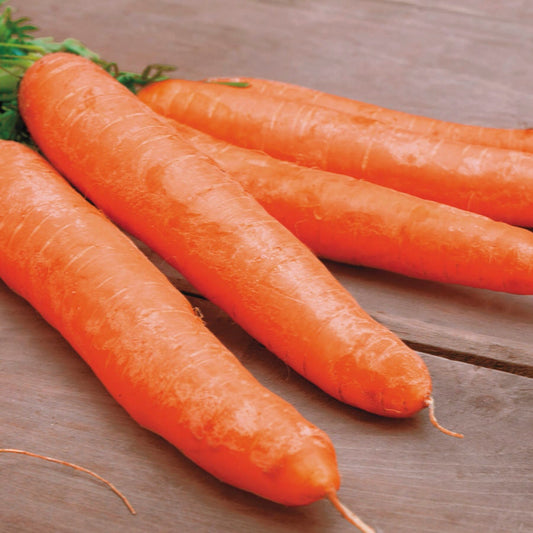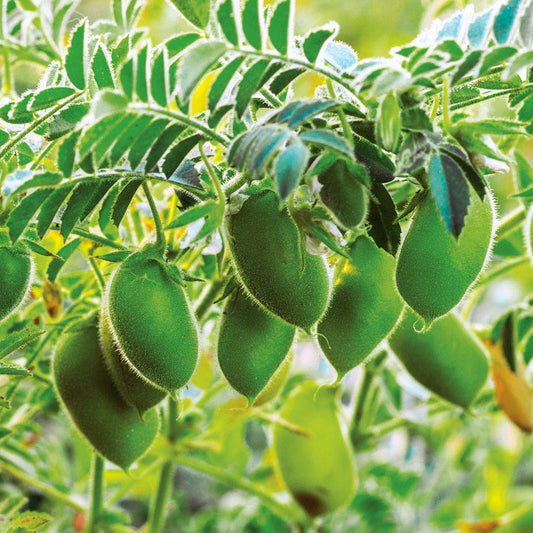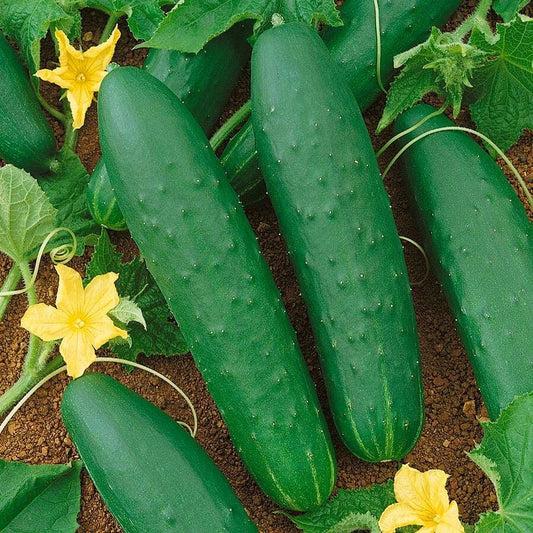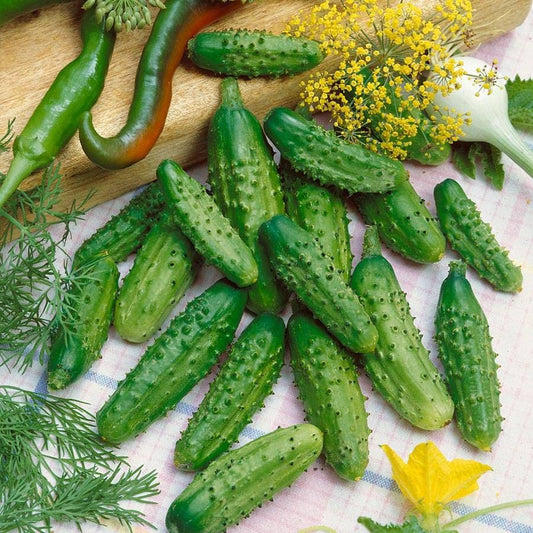Organic Vegetable Seeds
Upgrade your garden with our collection of 100% non-GMO organic vegetable seeds. From delicious tomatoes to crunchy cucumbers, these seeds are designed to thrive in any environment. You'll have access to fresh, homegrown produce in just a few steps. Shop our 87 varieties of organic vegetables and grow your dream garden today.
-
Aunt Molly's Ground Cherry Organic Seeds
Regular price $5.95Regular priceUnit price / per$5.95Sale price $5.95 -
English Organic Thyme Seeds
Regular price $2.95Regular priceUnit price / per$2.95Sale price $2.95 -
Early Summer Crookneck Organic Squash Seeds
Regular price From $5.95Regular priceUnit price / per$5.95Sale price From $5.95 -
Sparkler Organic Radish Seeds
Regular price $2.95Regular priceUnit price / per$2.95Sale price $2.95 -
Waltham Organic Butternut Squash Seeds
Regular price $4.95Regular priceUnit price / per$4.95Sale price $4.95 -
Cocozelle Organic Squash Seeds
Regular price $3.95Regular priceUnit price / per$3.95Sale price $3.95 -
Artisan Bumble Bee Mix Organic Cherry Tomato Seeds
Regular price $4.95Regular priceUnit price / per$4.95Sale price $4.95 -
Marketmore Select Organic Cucumber Seeds
Regular price From $2.95Regular priceUnit price / per$2.95Sale price From $2.95 -
San Marzano Organic Tomato Seeds
Regular price From $2.95Regular priceUnit price / per$2.95Sale price From $2.95 -
Garden Blend Organic Kale Seeds
Regular price $3.95Regular priceUnit price / per$3.95Sale price $3.95 -
Black Beauty Organic Squash Seeds
Regular price $5.95Regular priceUnit price / per$5.95Sale price $5.95 -
Black Beauty Organic Eggplant Seeds
Regular price $2.95Regular priceUnit price / per$2.95Sale price $2.95 -
Space F1 Organic Spinach Seeds
Regular price $2.95Regular priceUnit price / per$2.95Sale price $2.95 -
Patio Pride Organic Pea Seeds
Regular price $5.95Regular priceUnit price / per$5.95Sale price $5.95 -
Belstar Hybrid Organic Broccoli Seeds
Regular price $5.95Regular priceUnit price / per$5.95Sale price $5.95 -
Vegetable Spaghetti Organic Squash Seeds
Regular price $4.95Regular priceUnit price / per$4.95Sale price $4.95 -
Delicata Organic Winter Squash Seeds
Regular price $5.95Regular priceUnit price / per$5.95Sale price $5.95 -
Cardinal Organic Basil Seeds
Regular price From $5.95Regular priceUnit price / per$5.95Sale price From $5.95 -
Organic Provider Garden Bean Seeds
Regular price From $4.95Regular priceUnit price / per$4.95Sale price From $4.95 -
Dagan Organic Brussels Sprouts Seeds
Regular price $5.95Regular priceUnit price / per$5.95Sale price $5.95 -
Little Finger Organic Carrot Seeds
Regular price $2.95Regular priceUnit price / per$2.95Sale price $2.95 -
Organic Garbanzo Garden Bean Seeds
Regular price $5.95Regular priceUnit price / per$5.95Sale price $5.95 -
Double Yield Organic Cucumber Seeds
Regular price $5.95Regular priceUnit price / per$5.95Sale price $5.95 -
Parisian Organic Hybrid Gherkin Cucumber Seeds
Regular price $5.95Regular priceUnit price / per$5.95Sale price $5.95
Organic Vegetable Seeds
What is the Easiest Crop to Grow Organically?
When starting your organic gardening journey, choose a beginner-friendly crop like lettuce, radishes, or bush beans. These vegetables are fast-growing, resistant to common pests, and require minimal care.
You can also try organic tomato seeds if you have a sunny spot in your garden.
What Vegetables Can and Cannot be Planted Together?
Companion planting is essential for a thriving organic garden. Some vegetables, like tomatoes and basil, help each other grow by repelling pests or enhancing soil nutrients. The same is true for radishes and carrots, lettuce and beets, and garlic with any other vegetables.
However, certain plants, such as onions and beans, should not be planted together due to growth competition. Learn more about successful pairings in our companion planting blog post.
What is the Difference Between Organic and Non-GMO?
Organic seeds are grown without synthetic chemicals, promoting soil health and biodiversity.
Non-GMO seeds are not genetically modified but may still be treated with synthetic fertilizers or pesticides.
At Park Seed, our organic seeds are always 100% non-GMO, ensuring you can grow naturally and sustainably.
How to Plan a Vegetable Garden Layout
Start by grouping vegetables by height, placing taller plants like corn, sunflowers, or trellised beans toward the back and shorter crops like carrots, radishes, and lettuce in the front. This arrangement helps plants get adequate sunlight without shading each other.
Make sure each plant has enough space to spread its roots and leaves. Crop rotation is also essential for maintaining soil health. Rotating crops each season helps prevent soil depletion and interrupts the life cycle of common pests and diseases.
How Deep Should a Garden Bed be for Growing Vegetables?
Most vegetables require a garden bed at least 12 to 18 inches deep to accommodate healthy root growth. Deep-rooted crops like tomatoes and peppers may need even more depth.
Raised garden beds can improve drainage and soil quality, making it easier to grow robust organic vegetables. Here are some best-seller raised beds we recommend:
